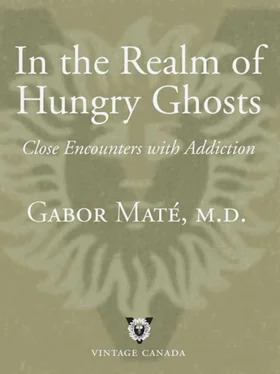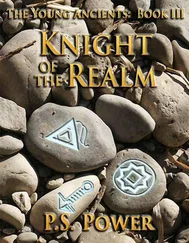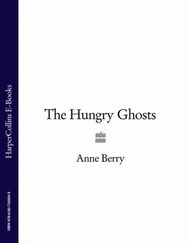The importance of consistent, nonstressed parent–infant interactions was demonstrated in a primate experiment involving three groups of mother–infant pairs. The investigators set up three sets of conditions under which the mothers had to forage for food: a situation of high but predictable difficulty; one of consistently low difficulty; and the third of unpredictably varying difficulty: easy one time, difficult the next. They then observed the nature of mother–infant relationships during the test period, the “personality” traits that evolved as the three groups of infants matured and the biochemical status of the young monkeys’ stress systems throughout their lifetimes.
It was not the high-difficulty foraging conditions that created stress for monkey moms and interfered with their parenting but the variable conditions, with their built-in unpredictability. These mothers exhibited “inconsistent and erratic, sometimes dismissive, rearing behavior.” Their infants, unlike the ones in the other two groups, grew up to be anxious as adults, less social and highly reactive—traits known to increase addiction risk. Biologically, this group of monkeys had lifelong elevated levels of a major stress hormone in their spinal fluid, indicating an abnormality in their stress apparatus. 5That also adds to the propensity for addiction, since both animals and humans use substances or other behaviours to modulate their experience of stress. 6Obviously it’s not a question of the mothers in the other two groups having been “better” parents but of the stresses afflicting the variable foraging mothers as they were nursing their infants—uncertainty being a trigger for physiological and emotional stress.
The lack of an emotionally attuned and consistently available parenting figure is a major source of stress for the child. Such a lack can occur when the parent is physically present but emotionally distracted—a situation that has been called proximate separation. Proximate separation happens when attuned contact between parent and child is interrupted due to stresses that draw the parent away from the interaction. The levels of physiological stress experienced by the child during proximate separation approach the levels experienced during physical separation. 7The development of the brain’s neurotransmitter and self-regulating systems and, in particular, the stress-control circuits, are then disrupted, and once entrenched, these physiological dysfunctions increase the risk for addictions. Addictive tendencies may already be seen in young children. In the absence of the biological mother, infant monkeys will become attached to an inanimate “surrogate mother” constructed of wire mesh, and human children lacking sufficient attuned parental contact may readily become addicted to television or to self-soothing behaviours such as eating.
The void is not in the parent’s love or commitment, but in the child’s perception of being seen, understood, empathized with and “gotten” on the emotional level. In our extraordinarily fragmented and stressed society, where parents often face the childrearing task without the support that the tribe, clan, village, extended family and community used to provide, misattuned parent–child interactions are increasingly the norm.
In contrast to the extensive research linking addiction to adverse childhood events—abuse, neglect and trauma—very little has been published on attunement outside specialized child developmental literature. I see two obvious reasons for this. First, the study of bad things that happened is fairly straightforward. It’s much more difficult to research attunement, since few people can recall and few researchers can observe what didn’t happen but should have happened. Second, a consciousness of even overt abuse is only slowly penetrating the addiction treatment community. So studies about the more subtle attunement issues are even further behind.
Poor attunement is also not something parents easily recall as they strive to understand the addictive behaviours of their adult children. As parents we make the natural mistake of believing that the intense love we feel for our kids necessarily means that they actually receive that love in a pure form. Further, parents who did not have attuned caring as small children may not notice their difficulty attuning to their own infants, just as people stressed from an early age may not realize just how stressed they often are. One couple I interviewed have two grown-up sons who both struggle with substance addiction. “Our boys’ infancy and early childhood were the happiest years of our lives,” the mother insisted. “There were no stresses for us then,” the father added, “and we have always had a good marriage.” It was after an hour of discussion that they disclosed that the man—a devoted parent and conscientious provider—had a cannabis habit all those years, well into his sons’ adolescence. He did not perceive his habit as an addiction, nor that it created an emotional distance from his children. The mother, from a strict religious background, resented her husband’s daily pot smoking and suppressed a rage that, until this very conversation, she had never expressed. Her belief, shared by many in our culture, was that if strong negative emotions like her anger remain under cover, the children will not suffer its effects.
While it’s true that overt episodes of hostility between the parents may damage the child, so may repressed anger and unhappiness. As a rule, whatever we don’t deal with in our lives, we pass on to our children. Our unfinished emotional business becomes theirs. As a therapist said to me, “Children swim in their parents’ unconscious like fish swim in the sea.” This mother and father were fully committed to their family and still are, but under such circumstances all the parental love in the world could not provide the children with a well-attuned, nonstressed, nurturing environment.
Thus it would be simplistic to claim that all hard-drug addictions originate in abuse or neglect and that all behavioural addictions are rooted in early stress and attunement problems. While generally true, in individual cases no clear divisions can be made. Many non-drug addicts were abused as children or suffered significant neglect. For example, there is a strong association between parental neglect and the later development of obesity. 8Once more, neglect does not need to be intentional or overt: parental stress and depression during the child’s early years will have the same effect, owing to the lack of attunement that follows. In the Adverse Childhood Experiences (ACE) Study it was found that childhood abuse was also a risk for adult obesity and that among the groups surveyed, the greater the weight, the greater was the percentage of adults who reported having been abused. 9On the other hand, people can develop hardcore drug addictions without having been abused or neglected, as with the family we’ve just looked at. Also at risk are kids who fall under negative peer influence during the vulnerable teen years. In such cases, however, there is usually a disruption in the parent–child relationship before the peer effect can assert itself. 10

Many phenomena in public life can be understood if viewed through the prism of addiction. As an illustration, we can look at the moral and legal demise of Conrad Black, Canadian-born business tycoon and international press baron, convicted in a Chicago court of fraud and obstruction of justice. If the media reports and biographical accounts are even remotely accurate, Black’s behaviour closely resembles that of my drug-seeking patients, albeit on an infinitely grander scale. His actions have all the features of addictive drives. His childhood, emotionally impoverished and darkened by abuse, more than explains those drives. 11
Читать дальше













